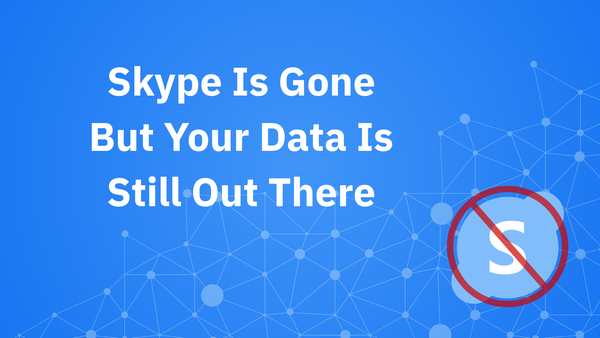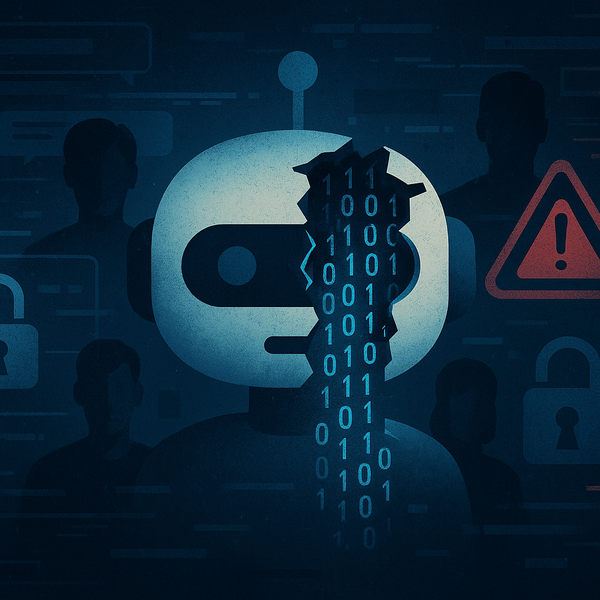Why Netizens Should Care About Data Leaks

The Internet offers many conveniences and ease of interaction, whether shopping, banking, or socializing. However, these conveniences also make us vulnerable to data leaks.
A data leak occurs when personal or confidential information is exposed, either accidentally or due to a data breach. This exposure can involve personal details like usernames, passwords, financial information, or other pieces of private data.
Why Should You Care About Data Leaks?
Data leaks can happen due to database misconfigurations, human error, or unauthorized access following a breach, putting affected individuals at risk. Here are three major reasons why you should care:
- Financial and identity theft risks: Leaked financial information and personal identifiers (like Social Security numbers) can lead to unauthorized transactions, identity theft, and fraud.
- Privacy and reputational damage: Attackers can exploit even basic data, such as email addresses or social media profiles, for phishing attacks, spam and impersonation.
- Increases the attack surface: Every leak adds to the data available for cybercriminals to perform targeted attacks, making it easier to commit account takeover fraud or other identity crimes.
Why Many People Ignore Data Leaks
Despite high-profile data breaches that end up leaking millions of data, many netizens remain apathetic due to:
- Data Breach Fatigue: Constant reports of data breaches can desensitize users, diminishing the sense of urgency.
- Low Immediate Consequences: Unlike immediate financial losses, the effects of data leaks, such as identity theft or account takeover, may take months or even years to surface.
- Convenience Over Security: People tend to prioritize convenience over data safety, often using services that collect extensive personal data without considering long-term consequences.
Despite the risks, many people don’t take data leaks seriously, with recent insights from Bitdefender’s 2024 Consumer Cybersecurity Assessment Report revealing how many netizens prioritize convenience over security despite frequently encountering online threats.
According to our recent consumer survey, nearly a quarter of respondents faced at least one security incident in the last 12 months. Although many respondents fear cybercriminals targeting their financial and personal information, users often neglect adequate protection. For example, a notable portion still reuses passwords across accounts or relies on minimal security settings. This mismatch highlights the gap between awareness and actionable security steps.
The survey showed that SMS scams, fraud attempts, and phishing emails are common security events, yet nearly 80% of respondents rely on smartphones for banking, healthcare, and managing sensitive data. This reliance, combined with weak security practices, increases their exposure to potential data leaks and cyberattacks.
Moreover, despite fears over personal information exposure, consumers show weak password management habits. Over a third claim, they still write down their passwords, and a significant portion reuse passwords across multiple accounts—habits that make users more susceptible to data leaks that could lead to credential-stuffing attacks.
What’s the Difference Between a Data Leak and a Data Breach?
A data breach occurs when malicious actors intentionally infiltrate a system to steal information. This is often followed by a data leak, where stolen data is sold or made public. However, data leaks can also happen accidentally due to poor security practices, such as misconfigured databases or human error. Both intentional and accidental leaks expose personal data, posing similar risks to individuals' privacy and security.
Examples of Large Data Leaks:
- Facebook Data Leak (2021):
In April 2021, over 533 million users’ data, including phone numbers and emails, was leaked online, exposing users to potential scams, phishing, and identity theft.
- Yahoo Data Breach (2013):
A significant breach affected 3 billion accounts, exposing emails, passwords, and personal identifiers, and making it one of the most significant breaches to date.
Best Practices to Protect Your Data
- Make your passwords strong and unique: Never reuse passwords, and make sure each account has a unique, strong password. A password manager can help you securely create and store all of your login information.
- Don’t ignore two-factor authentication or multi-factor authentication features: Enable these additional layers of security whenever available to make it harder for attackers to access your accounts even if passwords are compromised.
- Monitor your online accounts: Regularly check your financial and social media accounts for suspicious activity.
- Limit the data you publicly share online: Avoid oversharing on social platforms or providing unnecessary data to websites, forums or blogs.
- Stay in the know about data breaches: Don’t dismiss data breach alerts and news. Use digital identity monitoring tools to find out what type of personal information is exposed/leaked online.
Consider signing up for breach-monitoring services that alert you whenever your data is at risk. With Bitdefender Digital Identity Protection, you gain the tools and insights needed to protect your identity and keep your online accounts secure.
Use Bitdefender’s Digital Identity Protection for:
- Instant Alerts: You can immediately react to data breaches and privacy threats and take swift action to prevent damage, such as changing passwords, via one-click action items.
- Real-time monitoring: The service continuously scans the internet and dark web for your personal information. You will receive alerts whenever your data is involved in a breach or leak.
- Peace of mind: This service immediately flags suspicious activity and actively monitors personal information for peace of mind.
- A 360° view of all your personal data: See your digital footprint, including traces from services you no longer use but that still have your data, and even send requests for data removal from service providers.
Bitdefender solutions also include Data Breach Protection to check if your credentials have been caught up in a breach.
FAQs about data leaks
How do I know if my data has been leaked?
With Bitdefender Digital Identity Protection, all you need is an email address and phone number to monitor if your data was leaked/exposed following a breach. You’ll receive a comprehensive list of organizations that leaked your information, details on the exposed data, and action steps to improve your security. Bitdefender keeps you updated with notifications whenever new breaches occur, allowing you to respond quickly to reduce risks. The larger your digital footprint, the greater the exposure, creating opportunities for cybercriminals to exploit your data.
What can hackers do with my leaked data?
Hackers can use your information for identity theft, account takeovers, blackmail, or to sell your data to other criminals.
If my data is leaked, what should I do?
Change your passwords immediately, enable 2FA, monitor your accounts for suspicious activity, and consider credit monitoring services.
tags
Author
Alina is a history buff passionate about cybersecurity and anything sci-fi, advocating Bitdefender technologies and solutions. She spends most of her time between her two feline friends and traveling.
View all postsRight now Top posts
Fake Download of Mission: Impossible – The Final Reckoning Movie Deploys Lumma Stealer
May 23, 2025
Scammers Sell Access to Steam Accounts with All the Latest Games – It's a Trap!
May 16, 2025
How to Protect Your WhatsApp from Hackers and Scammers – 8 Key Settings and Best Practices
April 03, 2025
FOLLOW US ON SOCIAL MEDIA
You might also like
Bookmarks








